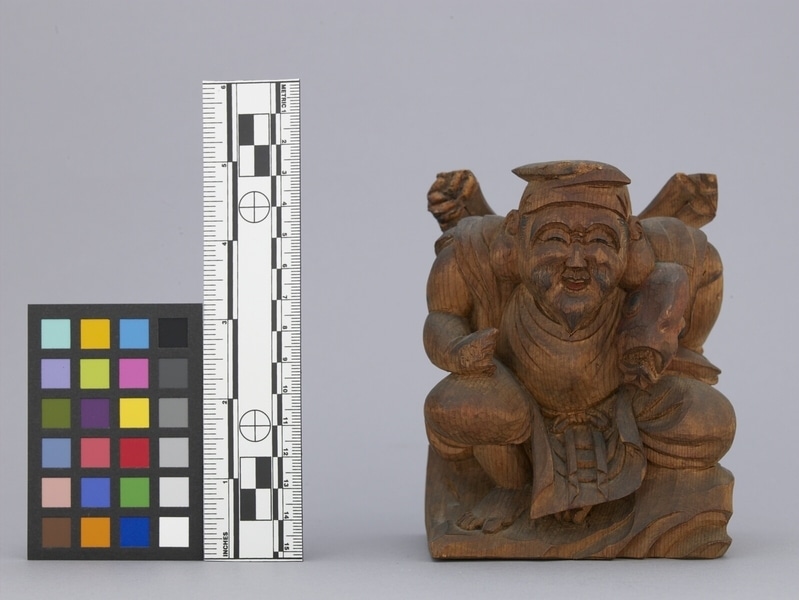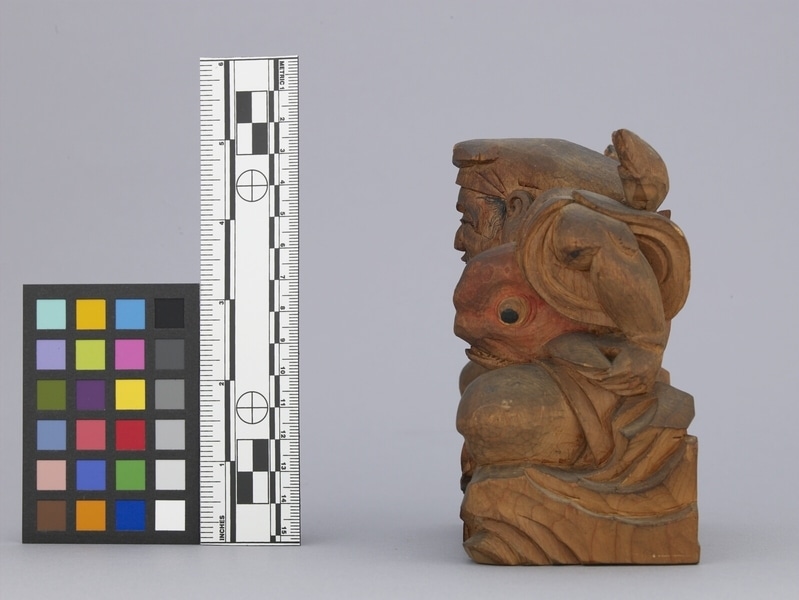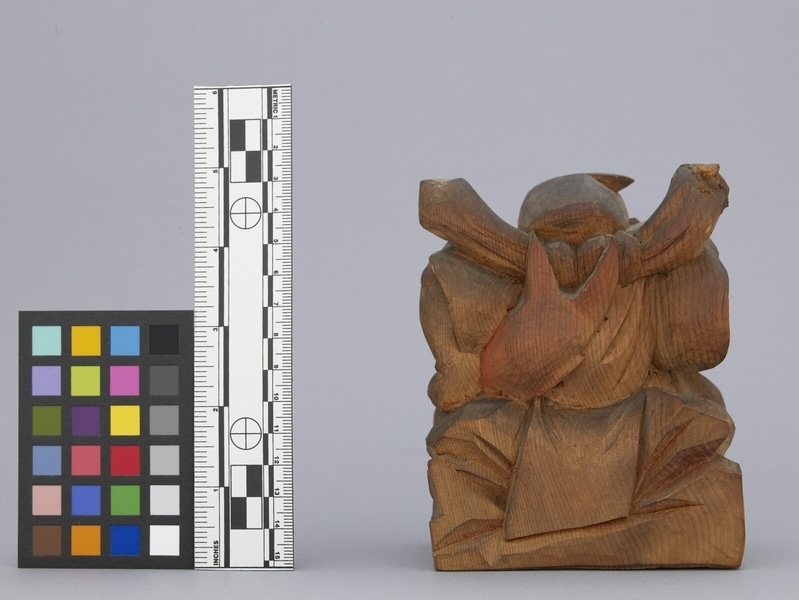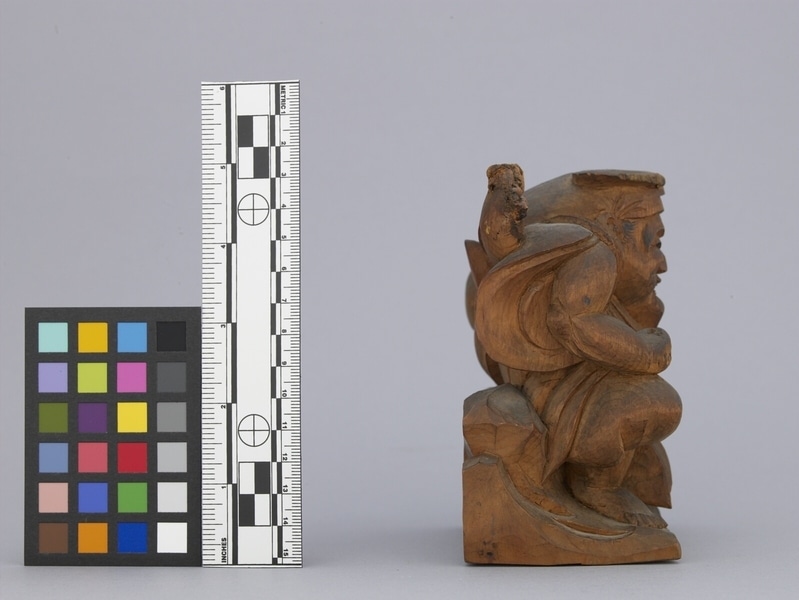Figure Item Number: N2.975 from the MOA: University of British Columbia




Description
Light coloured wooden seated figure known as Ebisu (えびす) also written asゑびす/恵比須/恵比寿/夷/戎/蛭子) with tai (鯛/sea beam), a symbol of good fortune, under his left arm, sitting on a rock. Some painting on the features; carved in a sophisticated style. Usually paired with Daikokuten (N2.976).
History Of Use
Ebisu (恵比須) is one of shichifukujin (七福神), the Seven Gods of Good Fortune, and the only kami (神; god/deity) among the seven, which is said to have originated in Japan without any Buddhist influence. Ebisu has several origin stories. Often seen as closely related to Hiruko (蛭子), the child of the legendary creation deities, or kami, called Izanami (イザナミ) and Izanagi (イザナギ) or Kotoshironushi (事代主神), the son of Ōkuninushi no kami (大国主神; master of the great land), a Shintō deity. In popular belief, Ebisu is considered the deity of all occupations, but especially of fishing. Ebisu is often paired with Daikokuten (大黒天), also one of shichifukujin (七福神), the Seven Gods of Good Fortune. They are often displayed together.
Iconographic Meaning
Ebisu is usually depicted as a plump old male figure with a grinning face, sitting on a rock. He wears a tall pointed cap called kazaori eboshi (風折烏帽子). He usually has a fishing rod in his right hand, or over his right shoulder.
Item History
- Made in Kamakura, Kanagawa, Japan
- Collected by Ronald P. Dore between 1957 and 1958
- Owned by Ronald P. Dore before 1958
- Received from Ronald P. Dore (Seller) and Leon & Thea Koerner Foundation (Funding source) during 1958
What
Who
- Culture
- Japanese
- Field Collector
- Ronald P. Dore
- Previous Owner
- Ronald P. Dore
- Received from
- Ronald P. Dore (Seller) and Leon & Thea Koerner Foundation (Funding source)
Where
- Holding Institution
- MOA: University of British Columbia
- Made in
- Kamakura, Kanagawa, Japan
When
- Collection Date
- between 1957 and 1958
- Ownership Date
- before 1958
- Acquisition Date
- during 1958
Other
- Item Classes
- carvings & sculpture
- Condition
- fair
- Current Location
- Case 79
- Accession Number
- 0028/0073 b